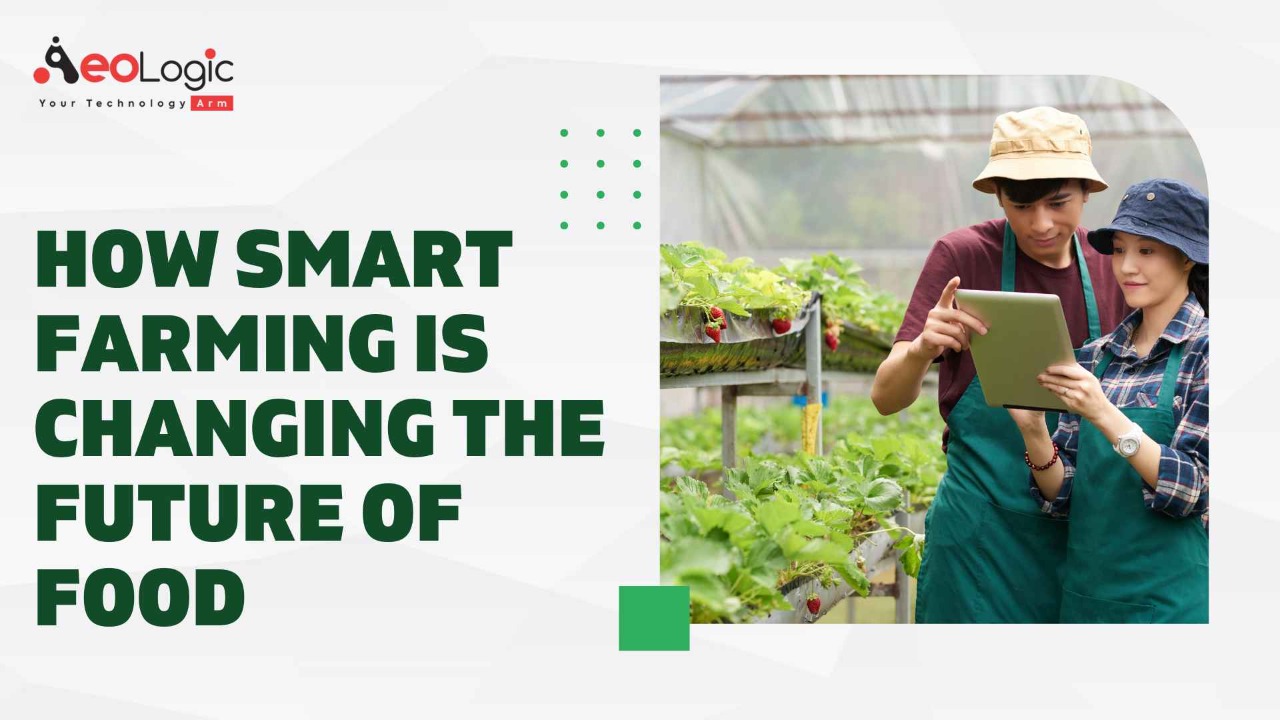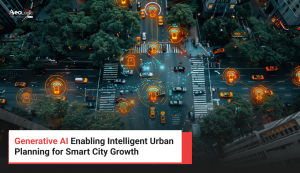The farming industry is implementing latest technologies which are termed smart farming systems to enhance the efficiency of their work. In this blog, we’ll let you know how the implementation of a smart farming system will transform the future of agriculture.
So let’s begin!
What Is The Need For Smart Farming System?
In food production right now, Smart farming, vertical farming and precision agriculture are the go-to buzzwords and for a good reason. We all are well aware of the fact that farming has always had a number of risks involved. Risks like; pests, water shortages and bad weather are only a few conditions that have an adverse effect on crop growth. We also need to find a more sustainable way to grow the food supply of tomorrow with expanding populations and the available farmland actually in decline. The tasks for farmers to feed the world in the future will require them to embrace a new smart farming system. Currently, the planet contains more than 7.5 billion people, but the population is expected to grow to around 9.8 billion people by 2050.
Artificial Intelligence (AI) and Internet of Things (IoT) In Farming
These advanced technologies have the potential to convert obstacles into astonishing opportunities. Just like any other industry, AI and IoT together can enable farmers to overcome challenges. One such challenge is limited resources. Farmers are tasked with feeding the world, but increasingly they need to do so with fewer resources. The promising news is that smart agriculture technologies and AI in farming are booming. Innovations from seed breeding to using sensors to get minutes by minutes crop feedback, and more farms are embracing the internet of things (IoT).
Also read our blog on “How has Technology Changed Farming?”
Innovations In Smart Farming System
Advancements in technology enable the farmers to implement the latest technologies to enhance their performance. Over the past few years, innovations in technology have benefited farmers in the most phenomenal way. Following are three of the most promising technologies in agriculture in 2022.
Bio-Technology Innovations
Agricultural innovation includes biotechnology, a market projected to grow 7.07 per cent compound annual growth rate between 2019 and 2025 with nearly 90 billion US dollars spent in 2018 alone. Biotechnology innovations include seed breeding techniques and tools to modify a plant’s yield size or colour.
Data insights and a personal touch
Innovation in precision agriculture is growing as well, as a market anticipated to reach 43.4 billion US dollars by 2025. Applying various technologies helps farmers increase efficiency. On the hardware side, wide adaption of innovations like yield monitors and automated planters and sprayers have been seen. However, the next step is analyzing the information gathered by these tools.
Precision agriculture is helpful even for small farmers, they can now analyze their field data, which allows them to apply less fertilizer. In the past, they would spread the entire field with fertilizer at a consistent rate. But now, by pulling soil samples, they can optimize which areas need more potash and only spread in those parts of the field. Undoubtedly, it results in saving both time and money.
Optimizing equipment
One of the most exciting pieces of hardware that have been adopted by smart farms is drones. Drones are an incredible resource to help farmers scope out and even apply products to their fields. The standard of drones has increased dramatically, now drones can use infrared thermal imaging to gather images to analyze. The software can identify individual plants down to identifying leaf damage. The software can identify individual weeds, and then use an attached spot sprayer to kill them.
Eventually, flying and land-based drones will be able to pick the produce as well. Some farms are using drones to spread speeds for cover crops. Now, smart tractors will optimize GPS, and help farmers deliver, and the technology can automatically adjust the amount needed when making turns with GPS and cloud processing and nozzles can stop spraying once the area has received its ideal amount.
Conclusion:
To sum up, the smart farming system is transforming the farming industry drastically. It is increasing the efficiency and productivity of farmers astoundingly. Allowing them to feed the world even with limited resources. Are you looking forward to implementing a smart farming system into the farming industry? If yes, so, please feel free to contact us at support@aeologic.com









